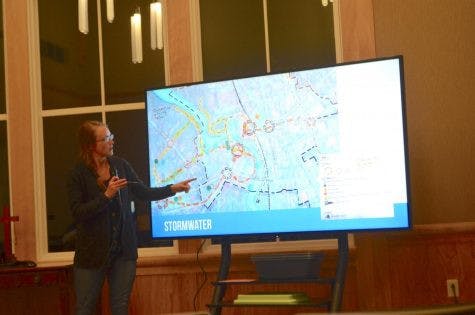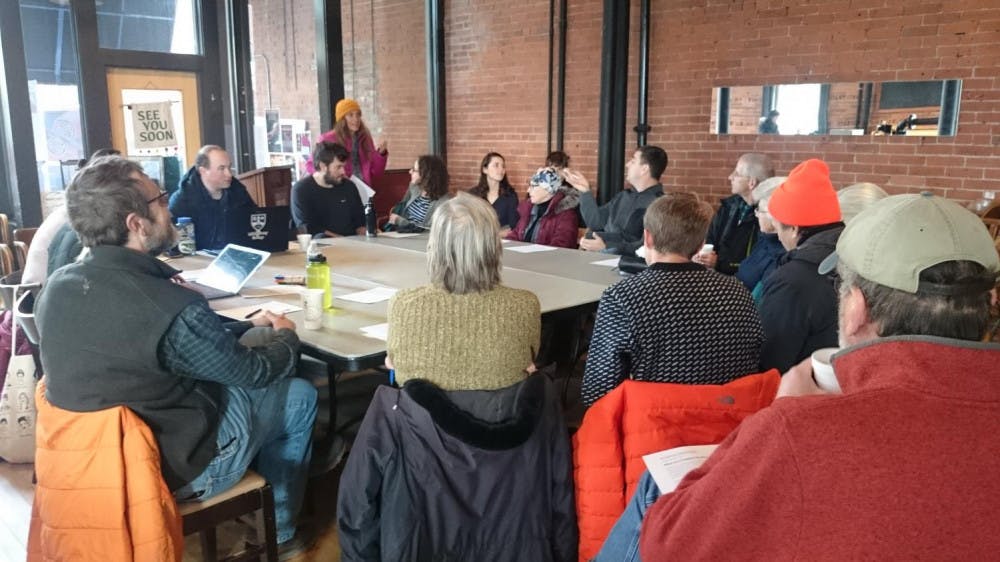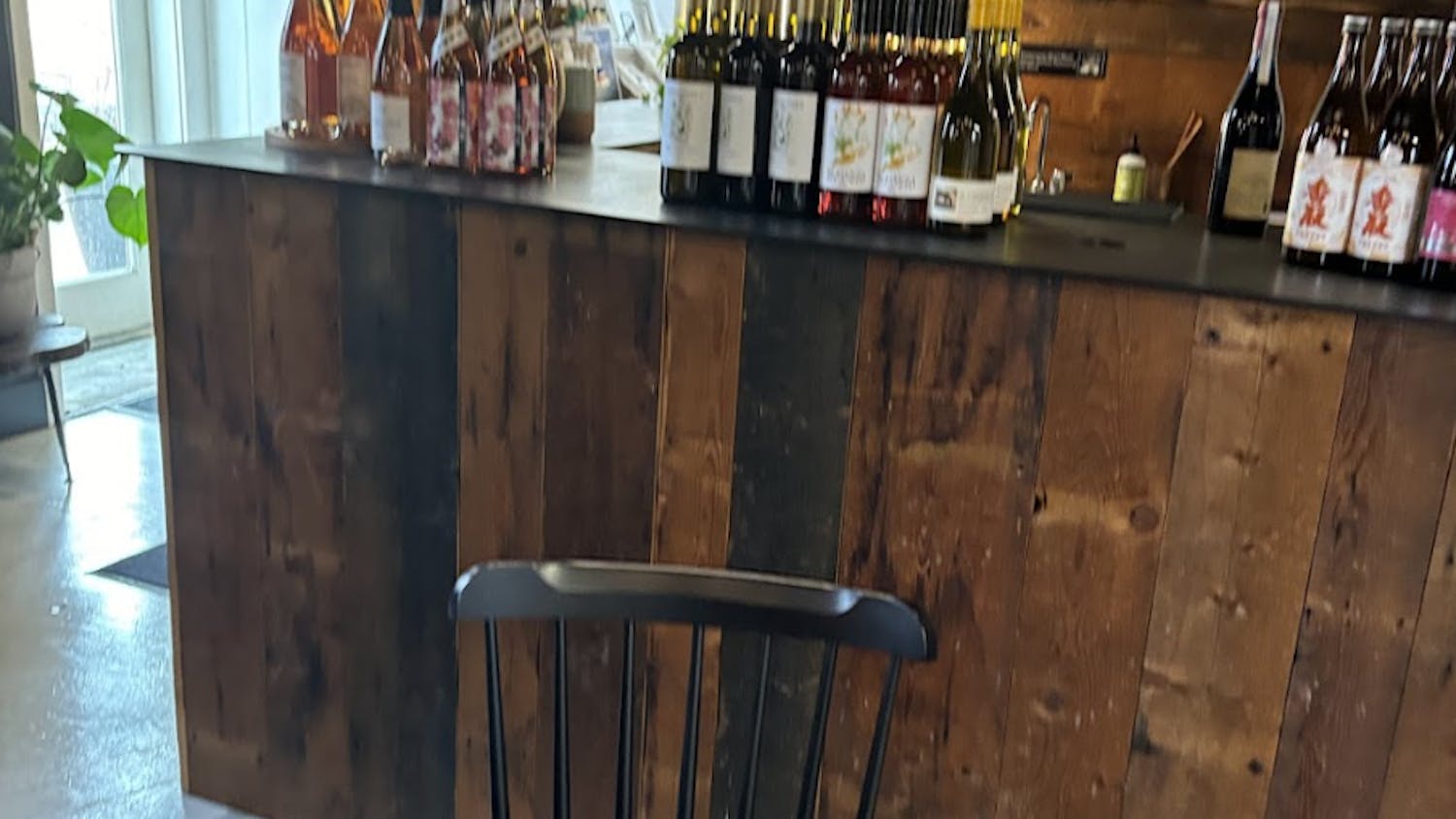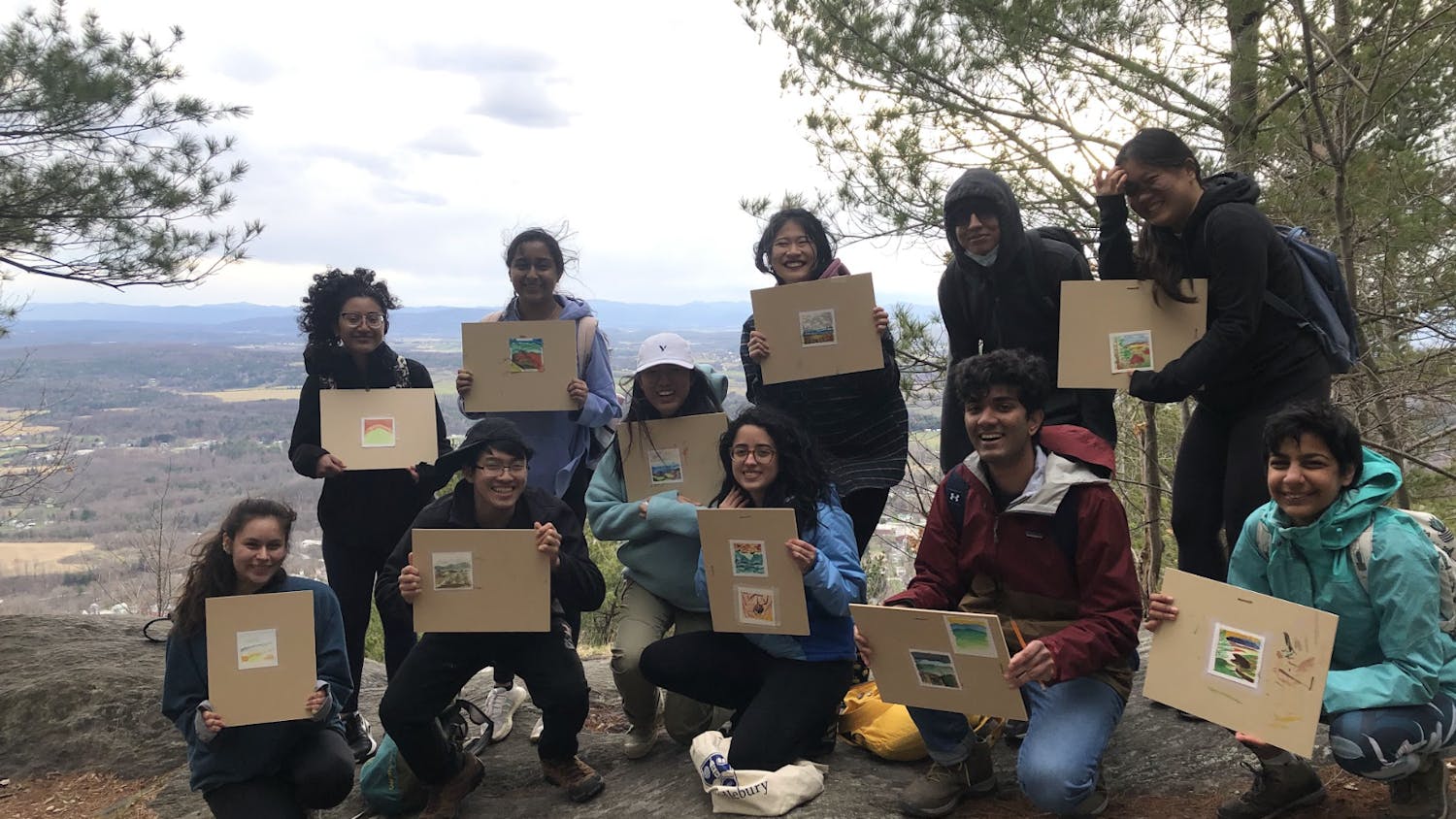This past weekend, members of the Middlebury community had the opportunity to express their hopes and concerns for downtown development during the Town’s “Planapalooza.” Over the course of four days, Planapalooza held several events to bring public input into the development of the new Middlebury Downtown Master Plan. “Planapalooza” is a distinct strategy of Town Planning and Urban Design Collaborative (TPUDC), the firm leading the project.
TPUDC is the lead consultant working to develop the master plan with the Middlebury Planning Commission led by Town Planner Jennifer Murray. Brian Wright, principal and founder of the firm, said that Middlebury is receiving grants from the Vermont Agency of Transportation and the Vermont Clean Water Initiative Fund.
The firm is employing charette, a style of planning characterized by intense periods of design and planning activity that stresses collaboration and conversation, to emphasize transparency and public participation. TPUDC has used this process in several other college towns including Lewiston, Maine and Manchester, N.H.
Planapalooza events included focus group sessions on Saturday morning, and a pin-up presentation Saturday evening. In addition to meetings, TPUDC held Open Studio hours in their temporary office on 51 Main St., encouraging community participation and input for this long-term project.
Emily Wright has been with the firm for 14 years and mentions how she specifically enjoys working with Vermont towns because it is wonderful to see people who “love and care for the surrounding nature.” On Saturday, Nov. 10, the planning group held a Sustainability and Resiliency meeting open to the public; one of the main topics discussed was how Middlebury should confront the current climate crisis.
Steve Maeir, a concerned citizen, said Middlebury needs a vision. “We need to set enforceable goals to meet the requirements of Paris climate accord and support a transition to an economy that is no longer based on fossil fuels,” he said. Maeir acknowledged, however, that this transition may put economic, political and social pressures on communities, and it may even “compromise certain aspects of business and ways of life.”

Consultants from Town Planning and Urban Design Collaborative presented options for the town’s stormwater removal.
Maeir thinks the college is taking steps in the right direction with its Middlebury Energy2028 plan, the college’s commitment to transitioning to using only renewable energy to power and heat its central campus. The college should “continue to be more aggressive in its footprint” and keep setting examples for the entire town, he said.
Another focal point of the weekend was transportation and mobility. TPUDC’s data review found that 81% of downtown customers drive to the downtown area, which citizens acknowledged heightens parking concerns and highlights the need to improve transportation. Eli Madden, a Middlebury resident of 36 years, believes safe pedestrian and biking infrastructure is important for environmental safety reasons, but also for social justice and community development.
“Our most vulnerable community members often have to walk or ride bikes, not by choice, and often at busy, dark times of day,” he said, mentioning missed opportunities for modern infrastructure like a bike lane on the Cross Street Bridge, which was completed in 2010 and partially funded by the college. Madden also discussed inadequate sidewalk clearance and visibility. Several citizens mentioned poor snow plowing that endangered pedestrians and cyclists.
Madden believes that students at the college “have an opportunity here to help get some good results and make some real change.” He said that students, many of who have bikes, can pressure the town and college to adopt modern guidelines for all future projects, and can vote in selectboard elections.
Charlotte Tate, associate director at the Rohatyn Center for Global Affairs, has worked in Middlebury since 1992 and walks from the college to the Co-op four times a week. Tate echoed similar concerns to Madden, saying a “pedestrian friendly downtown” is necessary if the town wants to attract more students, families and residents shopping and eating locally.
Residents were divided as to what types of stores should comprise the downtown area. Catherine Nichols said the loss of Ben Franklin is felt by the community and that the general store was well-loved. According to focus group participants, having an affordable, successful shop like the general store downtown could be another way to increase student and resident traffic through the town.
In the public pin-up and review presentation on Saturday night, TPUDC recapped the concerns citizens expressed over the past few days and presented potential areas for improvement. Attendees were also part of a visual preference survey, where consultants presented pictures of houses and residents were asked if they liked a particular style in the context of Middlebury. Later in the evening, John Stover, the economic developer from Washington, DC hired by Wright, proposed possible solutions and plans of action to address these concerns.
As part of their process, TPUDC spoke with the owners of dozens of downtown stores like the Marquis Theater, and were surprised to hear that students rarely were their customers. In order to address this issue, Stover spoke with college representatives about the potential for students’ declining balance to be accepted at downtown stores or even finding a way to include restaurant meals in our meal plan. After speaking with both parties, Stover said both “Middlebury store owners and the college did not seem opposed to the idea.”
Amazon has had an impact on downtown businesses, as many students prefer to shop online out of convenience. As Amazon continues to dominate and grow e-commerce, downtown businesses have lost a large portion of their student customer base. One proposal mentioned in the Saturday night pin-up was to have college Amazon deliveries be sent directly to Amazon lockers in town instead, requiring students go downtown to pick up their Amazon packages.
When Becca Brownstein ’23 was asked what she thought about extending the swipe system to downtown restaurants, she said, “I definitely think that will encourage students to go into downtown more as budgeting is often a concern and declining balances make it easy to track spending on food.” Becca said Amazon Lockers could be an inconvenience for students, especially during winter months. However, she said that “if the circumstances of this shift are explained to students in the larger context” of supporting and growing local businesses, “then people would be more likely to be receptive of the idea.”
The firm is prioritizing housing density downtown, riverfront development and stormwater improvements in its plan. Community members applauded the firm’s intent to incorporate green infrastructure to better manage runoff for pedestrians and drivers. In terms of riverfront development, Wright saw Bakery Lane as a point of major potential with the possibility of developing a mixed-use area and a more scenic river walk.
Multiple longtime residents expressed their belief that Middlebury has a history of projecting its commitment to sustainability without following through on these ideals. The new plan, therefore, presents a new opportunity to prioritize sustainability in future developments.
Resident Leslie Caer Amadora agreed with the fact that Middlebury needs some structural and strategic renovations. However, she stressed the importance of maintaining the town’s character throughout this process by “creating an infrastructure that holds the webbing to connect and diversify our town.”
Following Planapalooza, community members will have more opportunities to voice their ideas. A closing presentation, previously scheduled for Monday, Nov. 11 will now take place on Friday, Nov. 15 due to snow. The firm’s data will be refined during the winter and a draft plan will be delivered in the spring, with a targeted delivery date of July 2020. More information on the creation of the Town Master Plan can be found at townofmiddlebury.org.
Jack Summersby is a local editor.




